Solemn liturgy on feast of the Holy Family opens 2025 Jubilee Year of Hope in the Archdiocese of Detroit as 'pilgrims of hope'
DETROIT — As he led the faithful of the Archdiocese of Detroit into the Jubilee Year of Hope during Sunday Mass Dec. 29, Archbishop Allen H. Vigneron encouraged Catholics to take hold of the grace of hope to walk with courage into the coming year.
Pope Francis launched the 2025 Jubilee of Hope on Christmas Eve with the rite of the opening of the Holy Door at St. Peter’s Basilica immediately before celebrating midnight Mass. The act has been a fixture of the Catholic Church’s celebration of jubilee years since the Holy Year 1450.
The Church celebrates ordinary jubilees every 25 years, although extraordinary jubilees can be proclaimed in the interim, such as in 2016, which Pope Francis proclaimed a “Year of Mercy.” The next jubilee will likely take place in 2033, when the Church marks the 2,000th anniversary of Jesus Christ’s death and resurrection.
The Holy Year 2025 will run through Jan. 6, 2026. The pope designated the Feast of the Holy Family, Sunday, Dec. 29, as a time for all bishops around the world to lead their local churches into the Holy Year.
Celebrating the opening Mass at the Cathedral of the Most Blessed Sacrament, Archbishop Vigneron explained that the year's theme, “Pilgrims of Hope,” is a reminder of the expectation of good things to come, and that, because it is a pilgrimage, it is not done alone.
“One of the professors over at Sacred Heart (Major) Seminary put it this way: ‘Hope is the disposition that flowers in the heart when faith looks to the future,’” Archbishop Vigneron said in his homily. “The faith with which we look to the future is a faith that guarantees the future belongs to Christ, and so our hope is the flower of that faith in the power of the Lord Jesus."
By nature of being a pilgrimage, it is a movement toward the unknown future, the archbishop said. Many people would try to predict the future, he added; news stations, pundits and intellectuals have their own predictions for 2025, but they are simply guesses.
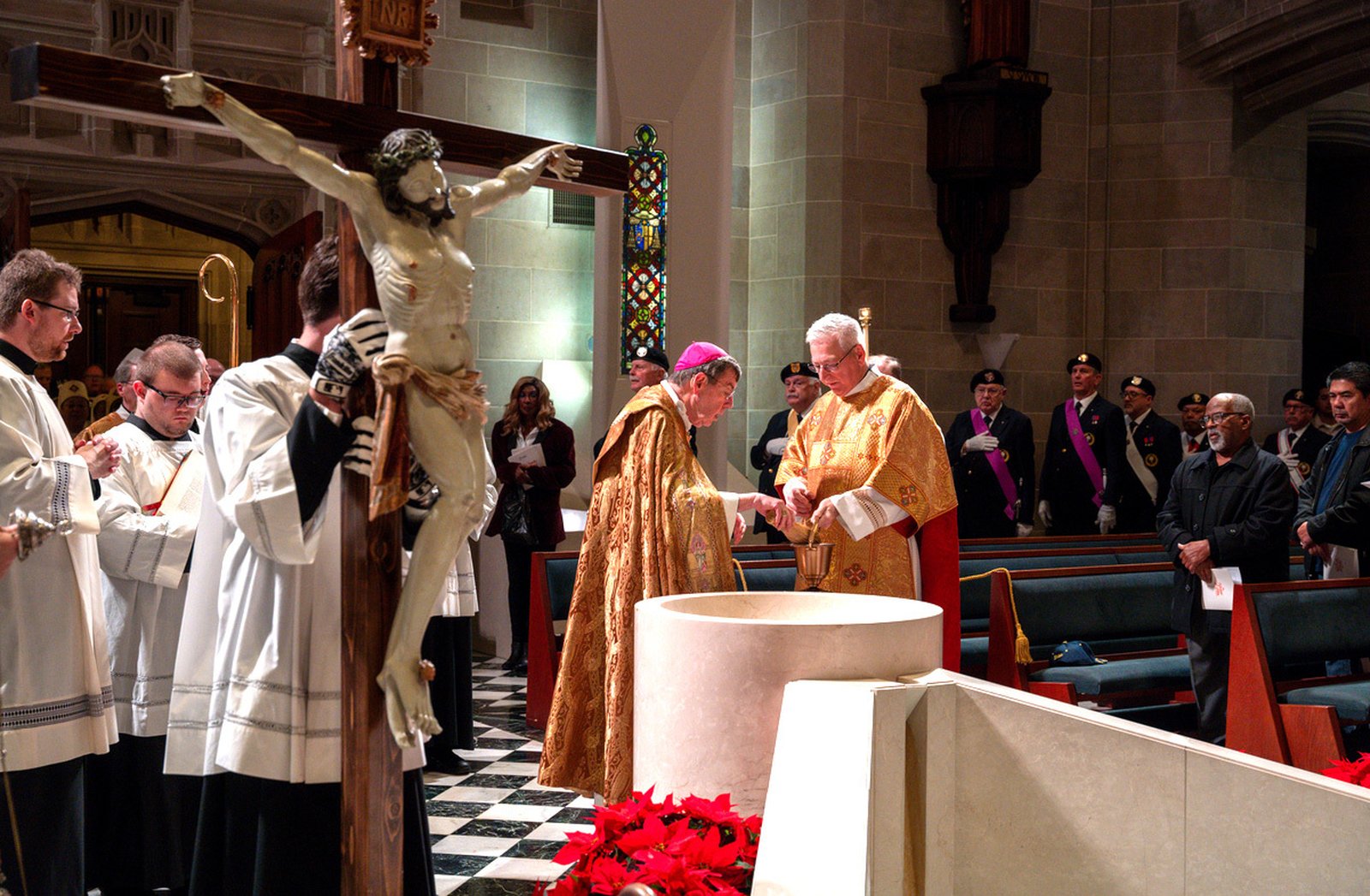
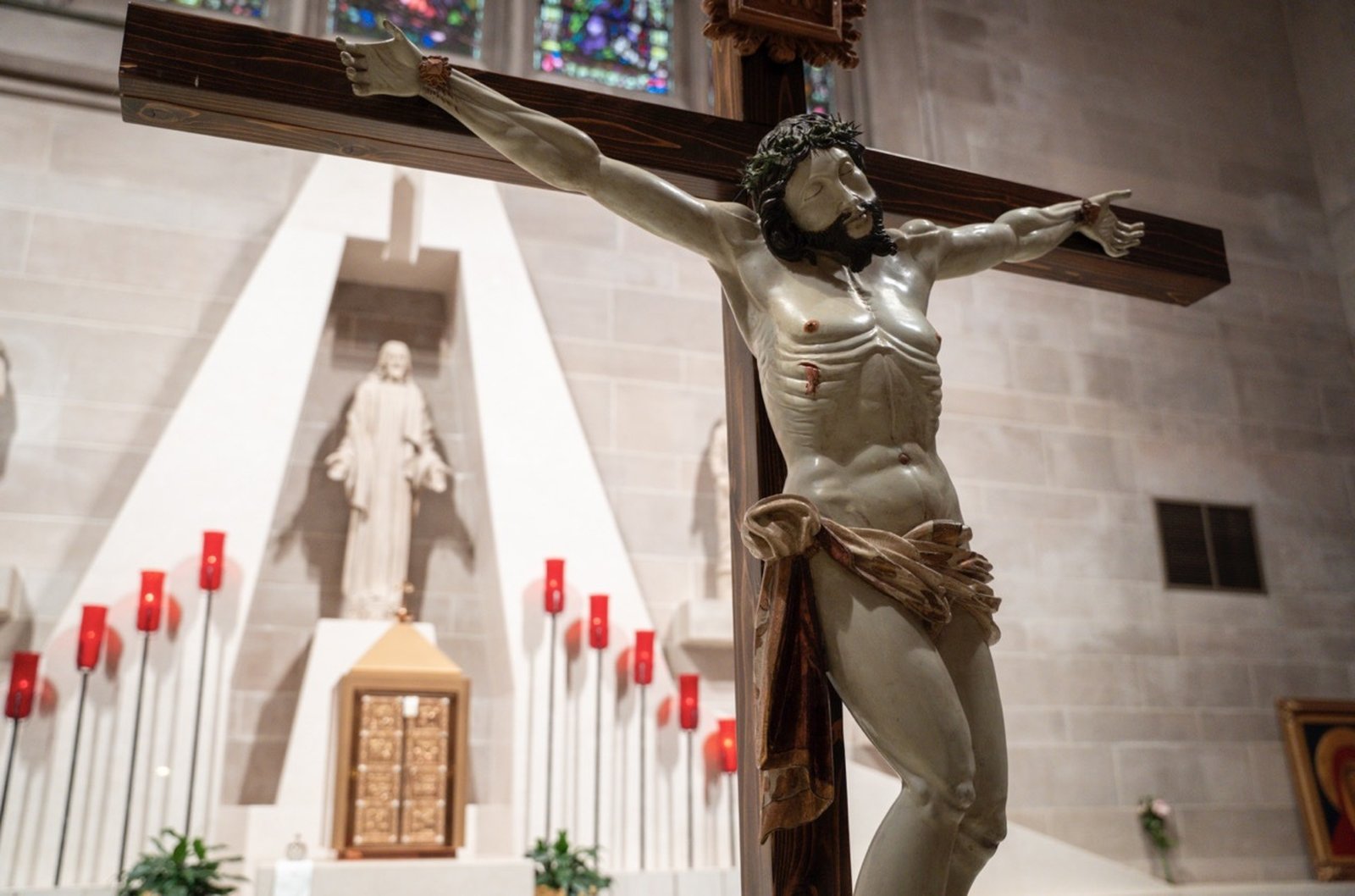
“The future is unknown to us, and what we do know is that we move into it as pilgrims with trust in the Lord Jesus because he is all-powerful,” Archbishop Vigneron said.
However, as we step into the future, we can turn to the Scriptures as a light for our path and a glimpse of what is ahead, the archbishop said.
Turning to the second reading from the day’s liturgy from 1 John, Archbishop Vigneron said the faithful can be reminded of their foundation as members of the Church and the basis for their hope in Christ.
“St. John says: ‘See what love the Father has bestowed on us that we may be called children of God. And so we are’ (1 John 3:1). We can have hope in the mercy of God in the year to come because He loves us,” Archbishop Vigneron said. “He loves so much that He has adopted us; He loves us so much that in order to rescue us from the power of Satan, He did not hesitate to pay the blood of His own son as a ransom to redeem us. He is all good and merciful, God our Father, and so we are moved to pass into the future with hope with trust in Him.”
In the Gospel reading (Luke 2:41-52), which tells the story of Jesus being found in the temple to confer with the elders while Mary and Joseph returned to Nazareth, the faithful can be reminded of Jesus’ independence as well as his abandonment and obedience to the Father’s will, the archbishop said.
“We see that at the heart of our being, as sons and daughters of God, is a call to that particular kind of hope that bears fruit in self-abandonment,” Archbishop Vigneron said. “That is a kind of hope that we can particularly ask to be strengthened in this jubilee year.”
Throughout the jubilee year, the faithful can give themselves over to God in His loving providence, he added.
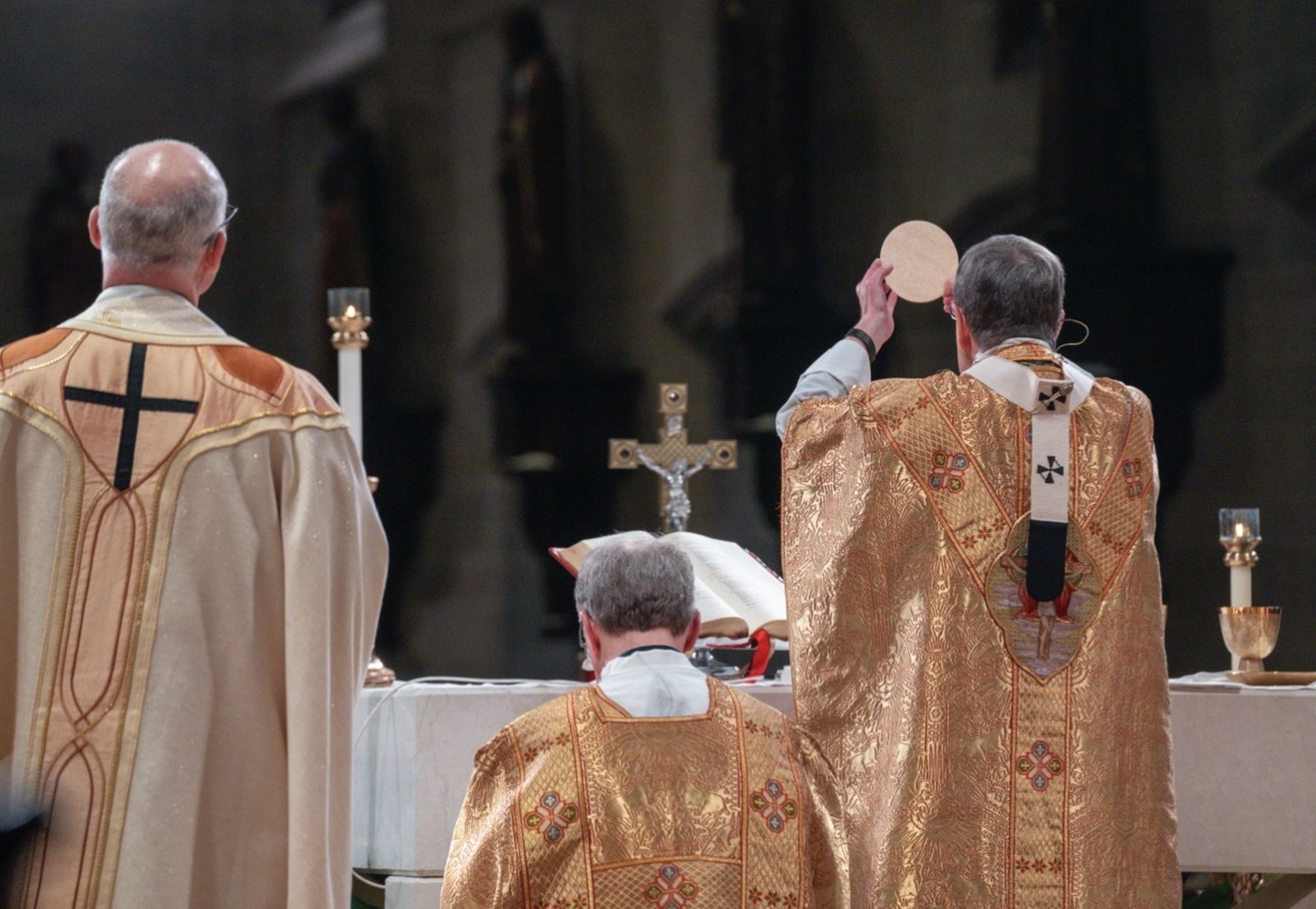
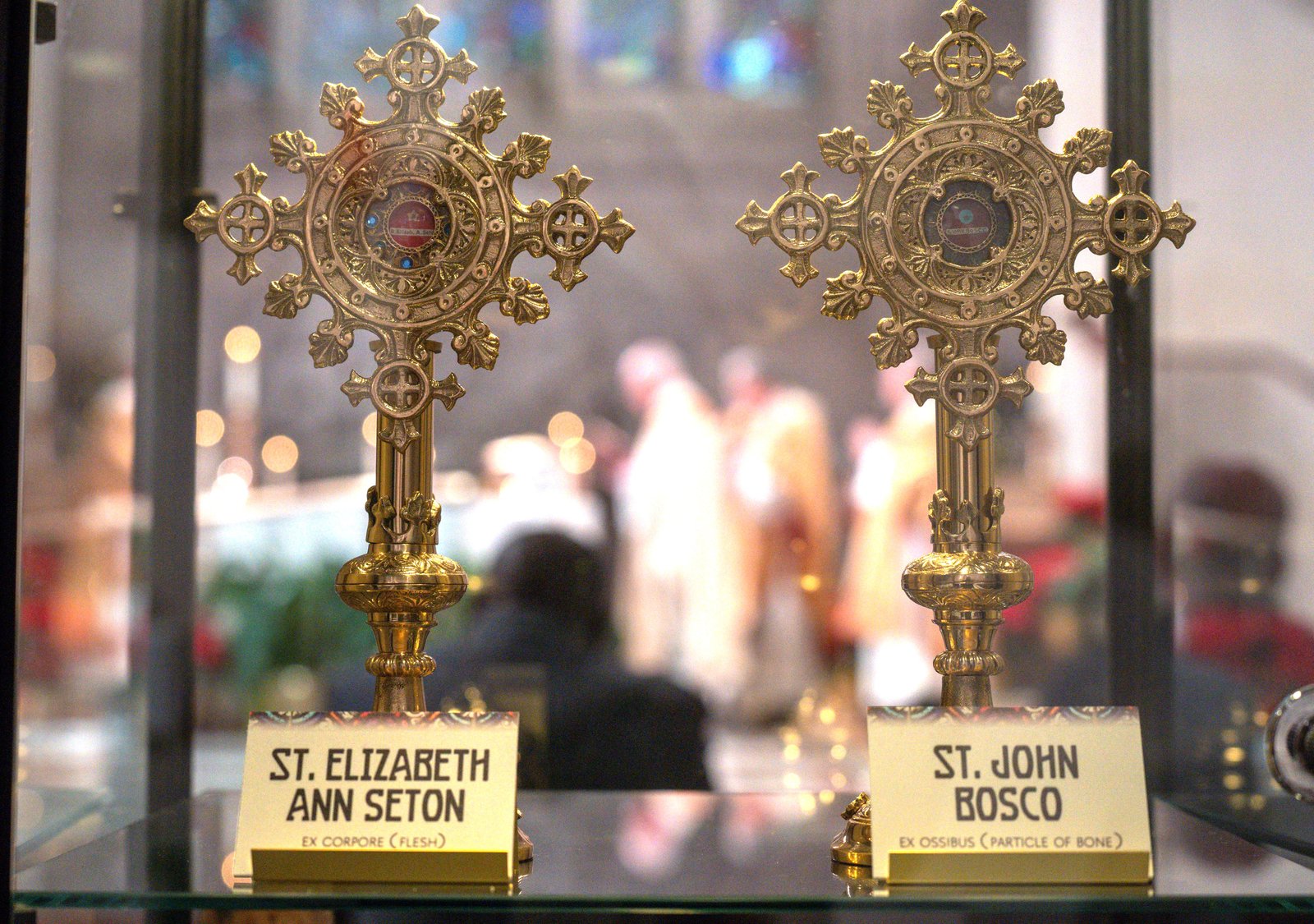
“We can trust that whatever the year ahead holds for us, whether it is trial or success, sickness or health, stress or peace, we can give ourselves over to the Father because we have hope, and we asked to be strengthened in that hope, that trust in Him, this jubilee year," he said.
Archbishop Vigneron added that repentance and hope are linked, because at the root of every sin is a failure to hope.
“We all want to be happy; we hope for happiness, and what is in front of us in every decision about what will make us happy is (the question), ‘Am I going to find my happiness my way or in God’s way?'” Archbishop Vigneron explained. “Sin is a decision to go for my happiness by placing my way above God’s way. To sin is to say, 'I don’t have enough hope that God can be trusted to secure my happiness.'
“In the garden of paradise, Eve lost hope. She was tempted to a kind of hopelessness by the serpent,” Archbishop Vigneron continued. “She wanted to be happy, and she had a choice to make. Was she going to be happy by having hope in what God had told her, or was she going to find happiness by doing it her own way?”
Archbishop Vigneron encouraged the faithful to ask during the jubilee year for the grace of hope that leads to repentance, particularly by availing themselves of the sacrament of reconciliation.
“When we go into the confessional, we can only be there because we have hope in the mercy of God, that no matter what we may have done, we trust that He loves and He will forgive us and that there is no unforgivable sin as long as there is repentance,” Archbishop Vigneron said.
One of the great graces of the jubilee year is the abundant bestowal of plenary indulgences, the archbishop added, which can be achieved by receiving holy Communion, confession within a reasonable amount of time, prayer for the intentions of the pope, and by giving up all attachment to sin.
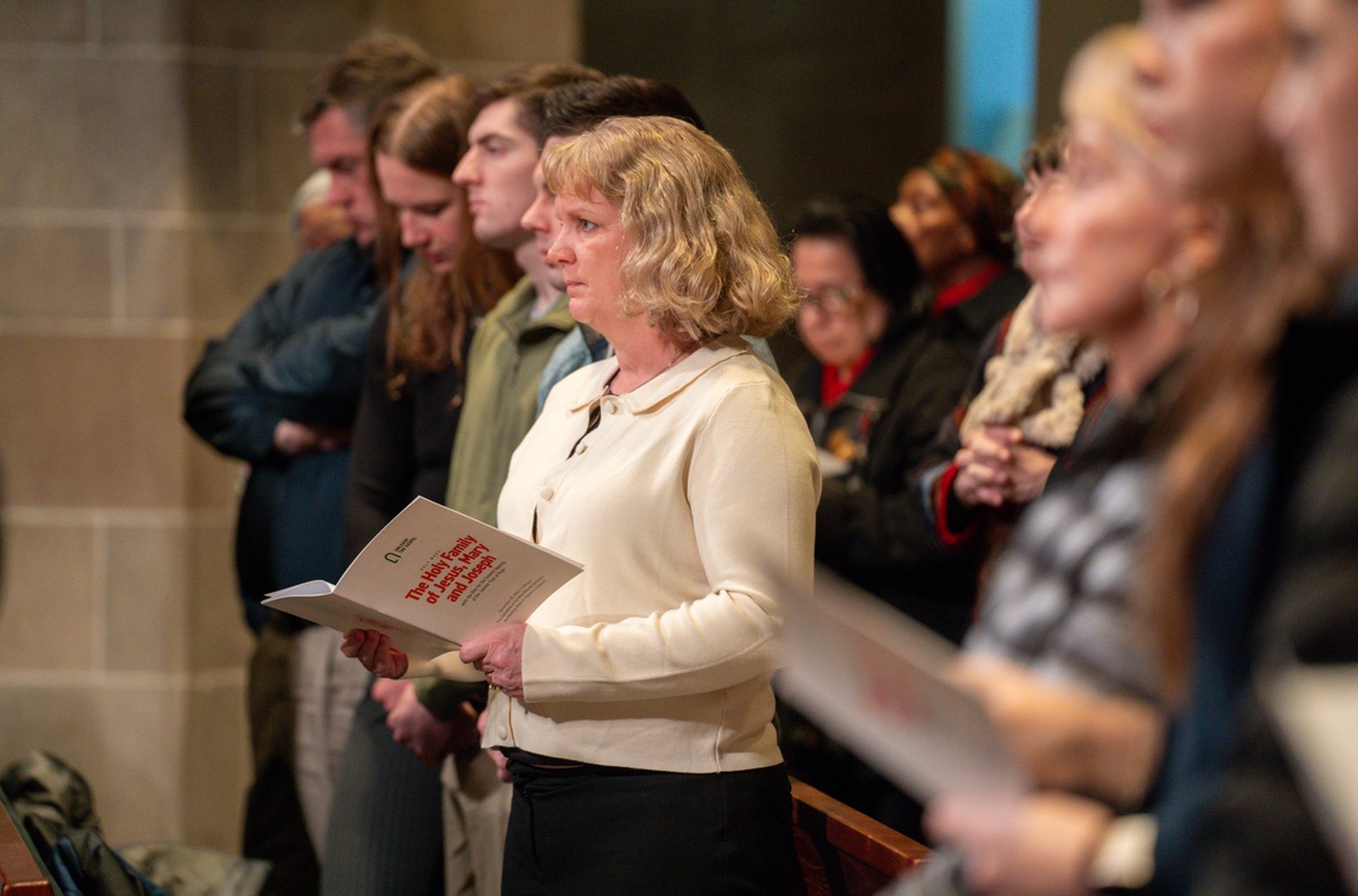
During the Jubilee Year of Hope, holy sites of pilgrimage have been designated throughout the world for the reception of a plenary indulgence. Archbishop Vigneron designated 12 Detroit-area pilgrimage sites for the Jubilee Year, including the Cathedral of the Most Blessed Sacrament.
While gathered at the cathedral for the opening Mass, the archbishop encouraged the faithful to receive a plenary indulgence that day — reminding them of one of the requirements, the reception of holy Communion.
“Our Eucharist is the preeminent way to lay hold the grace of hope because the Holy Spirit makes Christ present in his victory over death, which is our source of hope for eternal life,” Archbishop Vigneron said. “Our celebration of the Eucharist is the epitome of grabbing hold of the grace of hope in this jubilee year because here, the Holy Spirit gives us a pledge of the future.
“Let us take hold of the hope in this jubilee year and so walk with courage into the future.”
Copy Permalink
jubilee 2025











